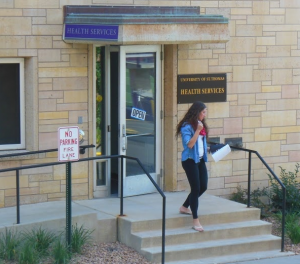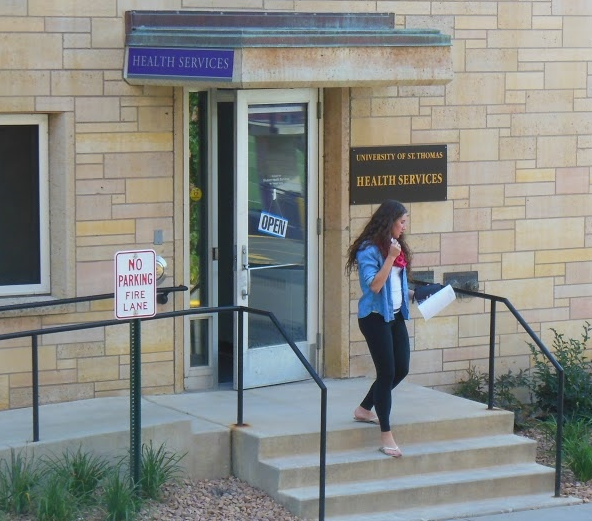The Minnesota Department of Health and the University of Minnesota have confirmed 12 cases of enterovirus D68 in the state.
The respiratory virus causes cold-like symptoms and has mainly been affecting children and teens, though adults may be at risk as well. Doug Schultz, communications specialist at the Minnesota Department of Health, said most of the children who experience severe symptoms already have a history of other illnesses.
“It can cause mild-to-severe respiratory symptoms,” Schultz said. “Most of the children who have gotten very ill with this virus have had difficulty breathing (and) have had some wheezing. Many of these children have asthma or a history of these things.”

Schultz also explained why the virus has mainly been found in children.
“We think part of the reason that children are affected is that they haven’t been exposed to this virus, where adults most likely have been exposed to some form of it before and that builds up immunity,” Schultz said.
St. Thomas junior Rachel Busse said she is concerned about the virus spreading to her family.
“I just called my mom, and she said two of my younger siblings were home with colds, so it’s pretty clear that cold and flu season is coming full force,” Busse said. “I have seven younger siblings, so if one of them catches something, at least half of us end up sick. Still, it is a relatively uncommon virus as far as I understand, so I’m not panicking right now.”
But sophomore Sebastian Borges, who has two younger brothers, said he isn’t very worried about the virus spreading to his family.
“I’m not too concerned about my brothers catching anything,” Borges said. “I would just hope that if a child did catch any respiratory disease, the parents would keep them out of school.”
Busse, like Borges, said she would urge her siblings to stay home from school if they were to catch the virus.
“I have siblings in elementary, middle and high school,” Busse said. “So if one of them was sick, it would probably affect a great deal of people. I think I’d just encourage them to absolutely stay home after being diagnosed.”
According to Schultz, washing your hands frequently is the best way to avoid the virus.
“It’s important to know that there are no vaccines for enterovirus,” Schultz said. “We would recommend avoid touching your eyes, nose or mouth with unwashed hands, and avoid kissing, hugging, sharing cups or eating utensils with people who are sick.”
Because the future of the virus is unknown, Schultz said those with pre-existing health conditions should pay close attention to their health.
“Anyone who has asthma or underlying health conditions should really be closely watching their health, and if they develop some of the symptoms of this virus, particularly fever, or if they have difficulty breathing or their symptoms suddenly take a turn for the worst, they should seek health care right away,” Schultz said.
Theresa Bourke can be reached at bour5445@stthomas.edu.



